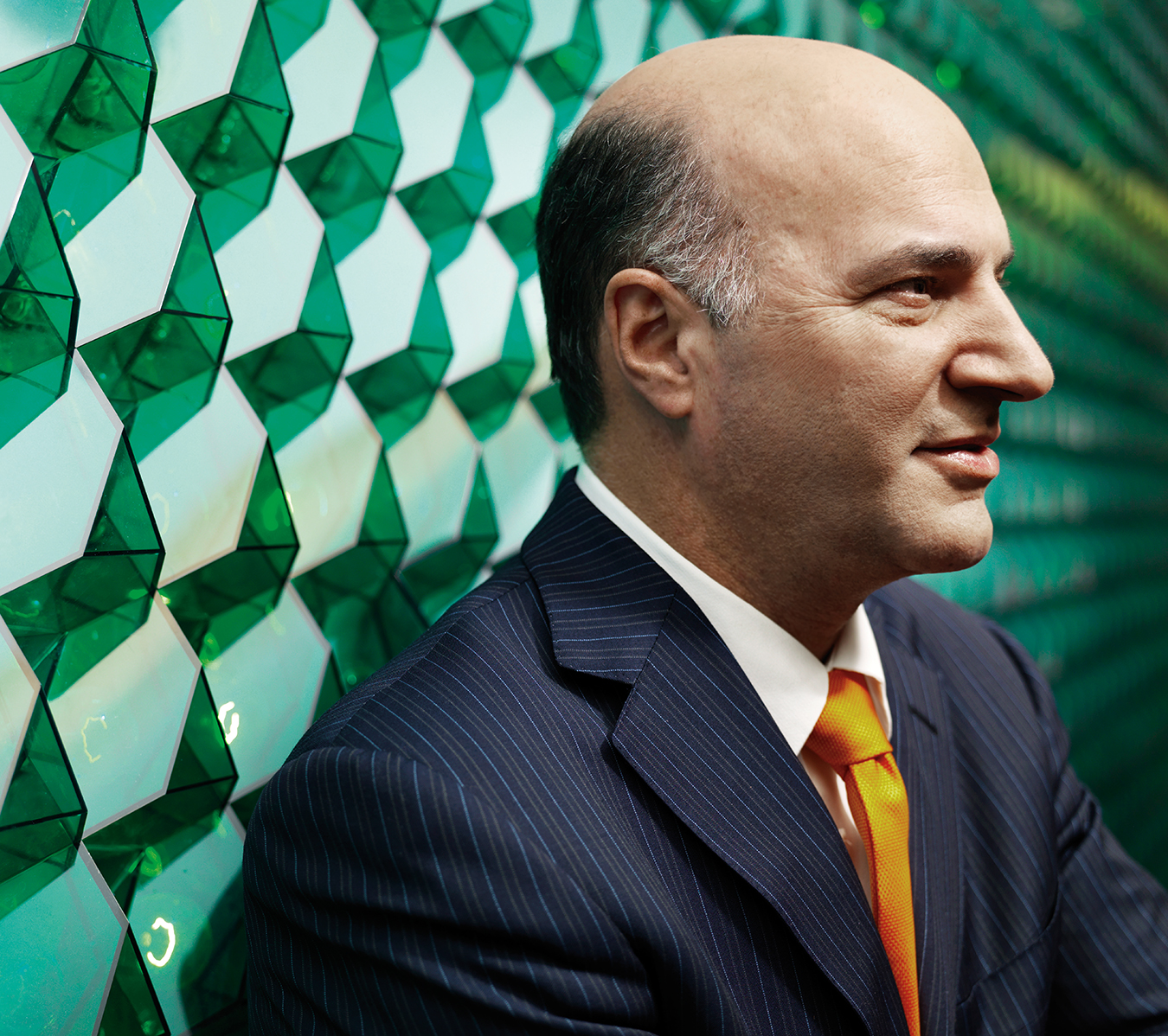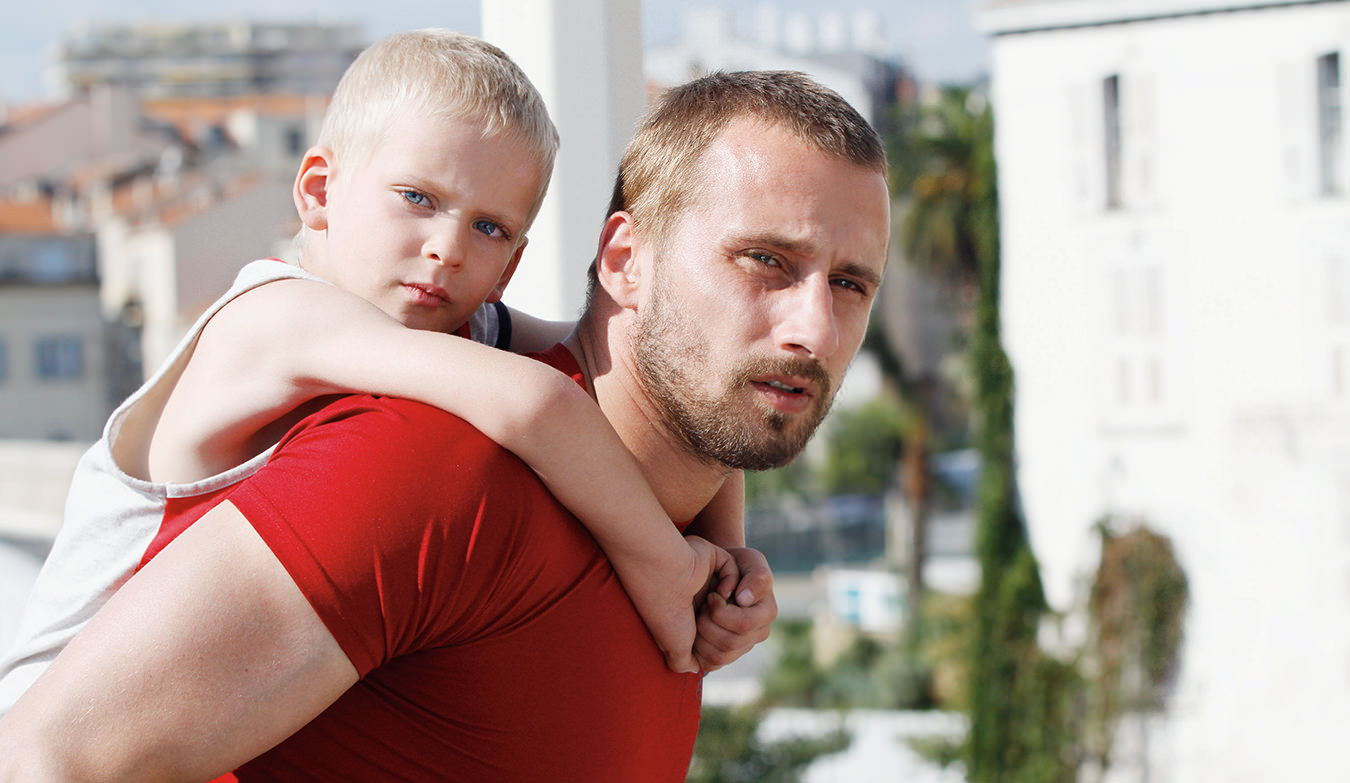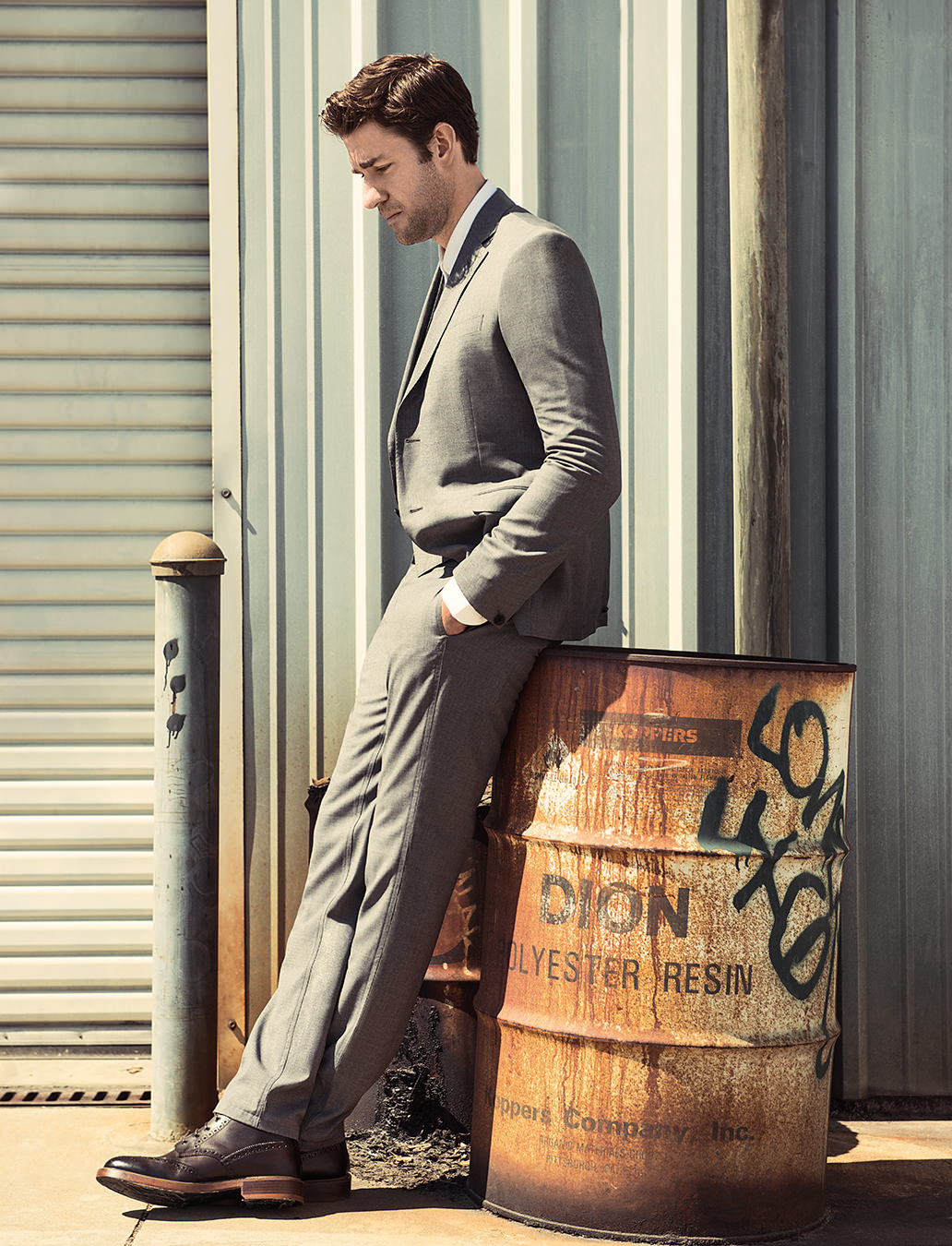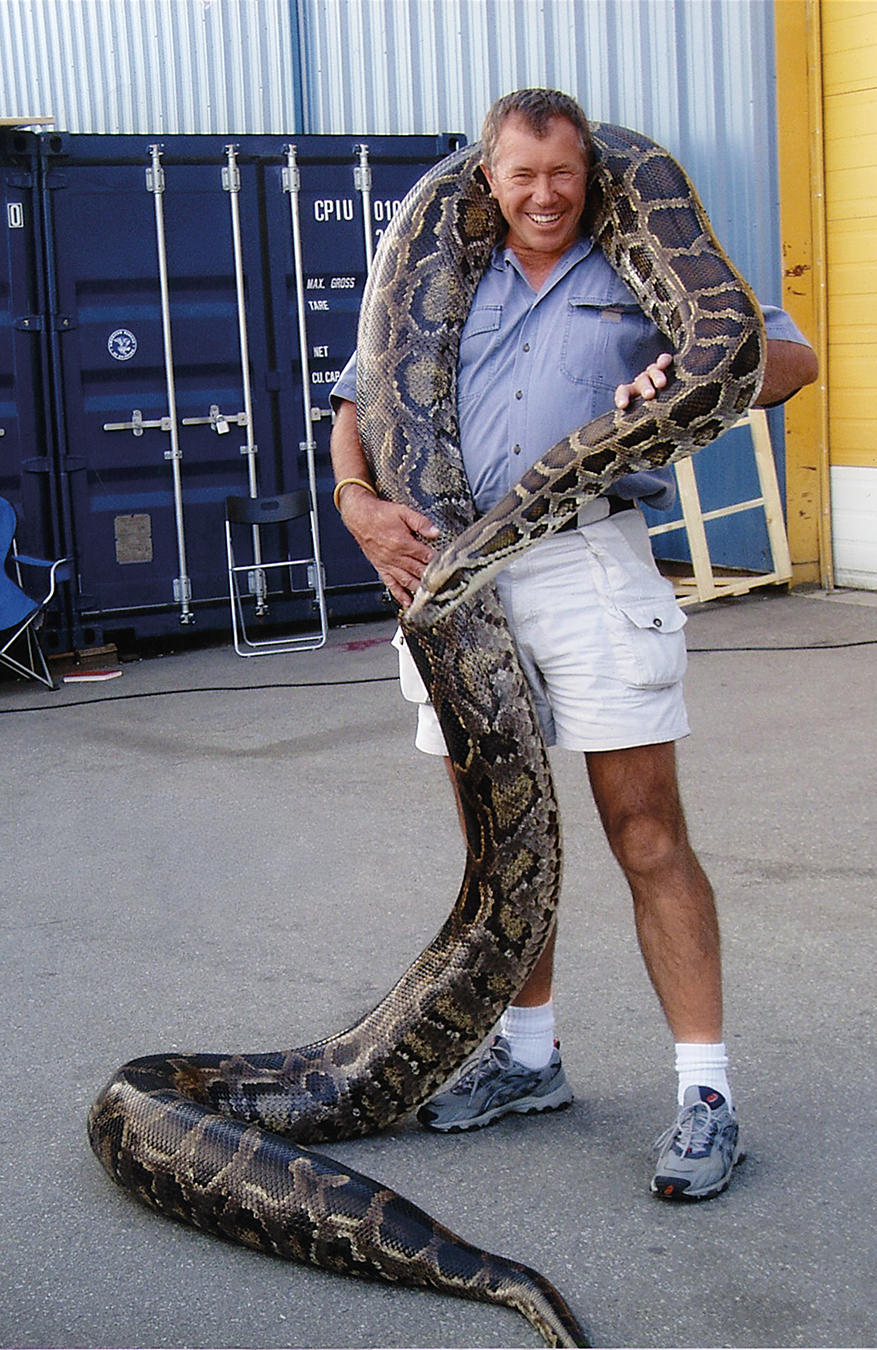Kevin O’Leary
Fiercest dragon.

Don’t try comparing Kevin O’Leary to the great villains of this world. First off, the balding bulldog of CBC Television’s Dragons’ Den does not admit that villainy is his business. “I’m a hero,” he says. “I help people.”
Secondly, he knows who the real bad guys in this world are. In 1963, while living in Cambodia for a year with his stepfather, he had the dubious honour of meeting future Cambodian mass murderer Pol Pot, then a military assistant to Prince Sihanouk, at a reception. “He was just another officer,” O’Leary says now. “I guess I could have killed him.”
O’Leary has no problem identifying the real demons that plague his current life: high taxes, government regulation, and—woe to them—fools who seek investment with no record of sales. “Your valuation is insane!” O’Leary howls at a parade of hapless entrepreneurs who cower on the set of the hit CBC reality series. “I’m out!”
These days, O’Leary is very much in. Aside from Dragons’ Den, the sixth season of which launches in October, O’Leary co-stars on Mark Burnett’s Shark Tank, the American version of the show that sees hopeful business people pitching to a panel of wealthy investors. While none of O’Leary’s fellow TV tycoons come off as exactly warm and fuzzy, O’Leary is in a vituperative class by himself. “I’ll give you $100,000 to burst into flames,” he told one Dragons’ Den candidate.
O’Leary also faces off with Amanda Lang on CBC News Network’s The Lang & O’Leary Exchange, a combination business news/debate program. You might be forgiven for wondering whether O’Leary is really a business mogul or simply plays one on TV.
He manages to do both. O’Leary made a fortune selling software concern the Learning Company to Mattel in 1999, and he is now the head of O’Leary Funds, a billion-dollar investment fund. He says that TV and investing are actually symbiotic. “The work I do with Amanda Lang, for example. We have four to five guests on, five nights a week. That’s 20 to 25 really interesting people—politicians, CEOs, CFOs, authors, all kinds of analysts. And you know the unwritten rule of television is that whatever is spoken in the green room is off the record. Can you imagine the information I’m getting?”
O’Leary is the Simon Cowell of Dragons’ Den—the man viewers may love to hate, but whose opinion they always wait to hear. “I’m the only one who speaks the truth 100 per cent of the time,” he says. “You have to differentiate between the person and the idea. I’m not attacking the person. I’m simply finding out if the idea has any merit. You can’t lie about money. There’s nothing grey about it. You either make it or you lose it.”
Luke Skywalker was the son of Darth Vader, suggesting that sometimes the apple does fall far from the tree. Kevin O’Leary was raised by a Swiss United Nations official from the International Labour Organization. O’Leary does not exactly serenade fellow Dragons with choruses of “Solidarity Forever”. And he is certainly no diplomat.
“Hotel operators—I can’t say enough bad things about them,” he told one entrepreneur—who was standing beside a hotel operator at the time. “They will string you out until your entrails are dripping out of every orifice before they pay you.”
He presents himself as a sort of personable ogre, a billionaire Shrek. When an Ontario man named Gordon Green showed up in a striped engineer’s getup, hoping to peddle a limestone aggregate product, O’Leary mused, “You know, I was actually thinking to myself, ‘Here’s a guy dressed up in a train outfit that I can really screw.’ But I’m too nice a guy.”
“Thank you,” Green replied.
Montrealer Sandro D’Ambrosio had a $1.5-million idea for a pedal-powered car that would be, as his hand-lettered chart explained, “The Solution to our Palution [sic]”. O’Leary offered this advice: “Leave here and never show this to anyone again. Let this amazing secret die with you, so that future generations will find it in papers you leave in a box. And I’ll invest in it then.”
“Okay!” D’Ambrosio replied brightly. People abused by O’Leary often seem mysteriously grateful for the experience.
O’Leary was born in 1954 in Montreal. His parents divorced early and his father died shortly afterward. Since Kevin’s stepfather, George Kanawaty, was an executive of the UN, it made for a peripatetic childhood for young Kevin, who experienced life in countries including Ethiopia, Cypress, and Switzerland.
Kanawaty has spoken of “sleepless nights” spent worrying about his young stepson’s future. Certainly, Kevin did not exactly have the look of a future king of industry. He was a guitar-playing wastrel who once wrecked his mom’s car and was fired from his first job at an ice cream parlour after only two days for refusing to scrape some gum off the floor.
It may be a stretch to say that his future was decided that day. But the firing did have a major impact on Kevin—he still calls it “incredibly traumatic”. His subsequent resolve was not to try harder, or do better, or to become the best damn gum scraper the service industry has ever seen. Quite the opposite; O’Leary was determined that in the future, he would be his own boss. Let others scrape. “I can afford to walk out of here if I want to, and never come back and there’s nothing you can do about it,” O’Leary once said, defining his idea of success. “That’s power. That’s freedom.”
O’Leary got an MBA from the University of Western Ontario and, after briefly working for Nabisco, co-founded television production company Special Event Television, helping create sports shows like Don Cherry’s Grapevine. Then, with proceeds earned from selling that company and a $10,000 loan from his mother, he co-founded SoftKey Software Products in a Toronto basement. It was 1986. O’Leary would have several brushes with bankruptcy. When he and Linda Greer tied the knot in 1989, they served pizza at their wedding reception. But as the nineties progressed, SoftKey began swallowing up competitors like a steroidal Pac-Man. In 1999, the company, now renamed the Learning Company, was itself swallowed by Mattel. Price: $4.2-billion (U.S.).
“You can’t lie about money,” says Kevin O’Leary. “There’s nothing grey about it. You either make it or you lose it.”
O’Leary followed up with lucrative investments in storage and other businesses. Today, as the chairman of O’Leary Funds, he owns luxurious homes from Geneva, Switzerland, to Muskoka, Ontario. (All boast excellent wine cellars.)
“Why people fail often has to do with letting emotion creep into their decisions about money,” he says. “Those two things do not mix. If you have to fire your own mother, you have to do it. The business is what has to survive, not any one individual. It’s a war every day. You have to pour boiling oil on your competitors. You have to fire people who don’t execute immediately, before that creeps into the rest of your business.”
O’Leary is liberal only with his vitriol. “There’s a groundswell of support for a much more right-wing movement in Canada,” O’Leary says. “I truly believe we need less government in this country.”
Not that he sheds tears of sympathy for fellow capitalists either—certainly not the vulnerable ones. He once attempted to coax fellow Dragons into a deal by urging, “This is a chance to suck the life out of this guy. When I smell rotting flesh, I want to pounce.”
Nor does he favour corporate welfare. “I’m outraged by the Canadian government putting money into zombie companies like Chrysler at every taxpayer’s expense,” he says. “These politicians won’t even be around when the companies default again—and they will.”
Dragons’ Den thrives on the predictable clashes between O’Leary and marketing maven Arlene Dickinson, the closest thing to a bleeding heart in the merciless Den. “You are the past,” Dickinson told him in one televised exchange after O’Leary sneered at a recyclable dishware product he considered to be overpriced. “You need to get your head out of the sand … You are the old way of doing business.”
“Kumbaya,” O’Leary answered. “Write your cheque, honey, write your cheque. I don’t like investing in earth-mother hippie types.”
As it turned out, Dickinson did not write that cheque. Down at the bottom line, entrepreneurial philosophies tend to merge.
On those occasions when another Dragon—often Calgary mogul Brett Wilson—bestows money on an enterprise out of kindness rather than shrewd business sense, O’Leary appears personally offended. He insists that it’s no act. “I find that a form of financial pornography,” he says. “Children should not see that. That is not what business is about. It’s evil. It’s against the essence of business.”
And so-called “ethical funds”? “I think they’re unethical. They’re ridiculous. When you invest your money, you do it to make money. You can take your profits and contribute them to anything you want. If I can get a good dividend off a tobacco company, I will. And then I’ll take those profits and invest them in a charity that supports people who are dying of cancer. I’m okay with that.”
O’Leary and wife, Linda, choose seven charities to focus on for five-year periods. “We focus on those charities and we try to make a difference,” he says. “That’s how people should do it. They should decide what percentage of their income they’re going to give away and then instead of scattering it, get focused. Pick a few institutions that matter to you and give all your money to them.”
In fact, there may be a little less difference between Wilson and O’Leary than meets the eye. One memorable episode in season four featured Clayton Hollingsworth of Higher Vibrations Wholistic Healing and Wellness, who advocated “crystal healing” and had no business plan whatsoever. Wilson shocked the Dragons by investing $5,000. But once off the air, O’Leary also chipped in. “I gave some money to the crystal guy, too,” O’Leary admits, “but I didn’t call it an investment. He was a very interesting guy. I gave him some cash, whatever I had in my pockets, because he had none. He was sitting in Toronto with no cash.”
When reality TV mogul Mark Burnett, the man behind Survivor, decided to create his own version of Dragons’ Den (itself patterned after a Japanese series called Money Tigers that has since spawned imitators around the world), he was smart enough to scoop a couple of Canadian Dragons—O’Leary and Robert Herjavec—to co-star in Shark Tank. (At press time, a second season of Shark Tank had yet to be confirmed.) The meeting of O’Leary and the famously dictatorial Burnett would seem the equivalent of two scorpions in a bottle. “He’s a very Type X guy,” O’Leary says (referring to a theory that divides managers into two categories, Type Y and Type X; the latter typically described as suspicious of employees and operating by means of threats and bullying).
“I appreciate his success,” O’Leary says of Burnett. “There’s nobody more successful in reality television. But he runs that place like Napoleon ran his wars. He knows what he wants and he gets it, and I’m happy to be part of that—but would I want to be his employee? No.”
It raises a question: how does Kevin O’Leary, that fiercest of Dragons and most ruthless of Sharks, think he would fare on Burnett’s most famous reality show?
O’Leary doesn’t hesitate. “I think I’d survive,” he says. “I’d bring a lot of cash with me.”
Across the room, photographers are setting up for his photo shoot. O’Leary is impatient. “I’ve got to go. Come on guys,” he snaps. “Money doesn’t wait.”
Grooming by Greg B., Tresemmé hair care, for JudyInc.com. Photographed at the CBC Broadcast Centre in Vancouver. Kevin O’Leary stands in front of a light mural: Splish Splash // by Norman White, 1975.




